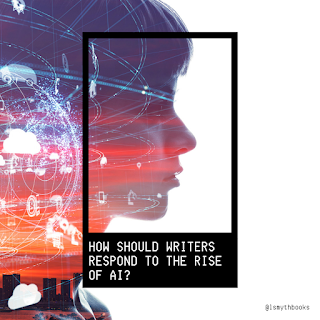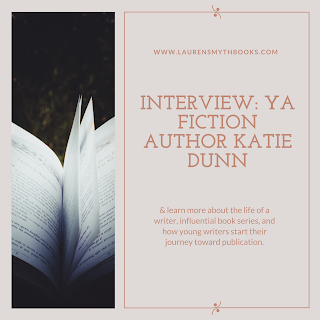Fourscore and Seven Years Ago: Simplifying the Chaos
Chances are you have no idea how much a 'score' is. (If you do, I respect you.) But if you're addressing a modern day audience, do you really want to risk half your audience having no idea what you're saying?
Reddit puts it nicely:
You've got to be kidding me. I've been further even more decided to use even go need to do look more as anyone can. Can you really be far even as decided half as much to use go wish for that? My guess is that when one really been far even as decided once to use even go want, it is then that he has really been far even as decided to use even go want to do look more like. It's just common sense.
In this wonderfully abstract paragraph, the problem isn't the vocabulary - it's the clutter. Mix the two together and you get an even worse monstrosity:
You're certainly attempting to mock me. I've been further even more attained to use even go requirement to do look more as macrocosm can. Can you really be far even as considered half as much to use go show such appalling zest for that? My guess is that when one truly been far even as decided once to use even go desire, it is then that he has really been far even as unequivocally clinched to use even go want to do look more like. It's just being levelheaded.
Let's look at six easy ways to simplify.
1. Don't use unnecessarily long words.
Re-read the above point closely. The underlined word, 'unnecessary,' is long, with 13 letters. (That's half as many letters as in the entire alphabet.) But it's still the most concise way of saying that something isn't needed. Some long words are necessary; others aren't. Words like 'loquacious' or 'abnegation' are almost meaningless in today's English and should be avoided.
2. Don't make really long sentences that people will eventually stop reading, because that's just annoying, and everybody knows that once you get to the end of a really long sentence you won't be able to remember what was said at the beginning because it has just been too long since you last saw it and the author has probably switched subjects by now.
You get the point: making a sentence too long causes the reader to lose interest. And since most people can't write a long sentence without switching topics in the middle, the reader is almost certain to get confused. Now you're left with a bored reader who has no idea what's going on, in which case you might as well write math textbooks.
3. Don't use words from other languages unless you're writing for an audience of linguistic savants.
Everything about that sentence was perfect until the very end. Then, suddenly, an italicized word appeared. It was distracting not only because it was in italics, unlike the rest of the sentence, but also because it's probably unfamiliar. We don't generally go around (in English-speaking countries) saying that our professors are savants or that our gateaux are delicious. If you want your writing to be easily read, don't add unfamiliar words from other languages.
4. Most people would consider that it is relatively important to have the meaning of the sentence be made clear at least fairly close to the beginning without allowing it to become clogged by either the passive voice or too many completely useless and redundant adjectives.
Ah, the passive voice - the one thatis hated by readers around the world readers hate.This relates back to the second point about making clear, short sentences. Don't allow the passive voice to conquer your writing. "I picked up the cat" is much easier to read than "the cat was picked up by me."
5. Define nicknames clearly.
I once read a book where two characters had the same name - Tom. One Tom died, the other lived. Since they were never in a scene together, I had no idea there were two of them until Tom magically resurrected himself after Tom was dead.
Using nicknames can give the reader a feeling of closeness to the character, or it can emphasize the different relationships other characters have with that character. Just be careful to clearly define nicknames as you go along. Otherwise, the reader will be panicking about zombie Toms.
6. Don't be afraid of contractions - they're grammatically correct.
To some extent, this depends on the kind of writing you're doing, but notice how natural the contractions in the previous sentence sound. The reading voice in your head doesn't get bogged down trying to pronounce 'not,' or wondering if that 'not' is supposed to be emphasized. Of course, if you're writing a scientific research paper, avoid contractions - this tip won't work for all situations. But if you're writing anything for the general population, including fiction, contractions are your friend.
These are just a fewsmall solutions to common writing mistakes. When our work is read by readers readers enjoy our stories, they should be able to do so without wading through the mire of getting stuck on the words we choose. Writing should be fluid and fluent like a dance, and it's our job as authors to choreograph that dance.
Reddit puts it nicely:
You've got to be kidding me. I've been further even more decided to use even go need to do look more as anyone can. Can you really be far even as decided half as much to use go wish for that? My guess is that when one really been far even as decided once to use even go want, it is then that he has really been far even as decided to use even go want to do look more like. It's just common sense.
In this wonderfully abstract paragraph, the problem isn't the vocabulary - it's the clutter. Mix the two together and you get an even worse monstrosity:
You're certainly attempting to mock me. I've been further even more attained to use even go requirement to do look more as macrocosm can. Can you really be far even as considered half as much to use go show such appalling zest for that? My guess is that when one truly been far even as decided once to use even go desire, it is then that he has really been far even as unequivocally clinched to use even go want to do look more like. It's just being levelheaded.
Let's look at six easy ways to simplify.
1. Don't use unnecessarily long words.
Re-read the above point closely. The underlined word, 'unnecessary,' is long, with 13 letters. (That's half as many letters as in the entire alphabet.) But it's still the most concise way of saying that something isn't needed. Some long words are necessary; others aren't. Words like 'loquacious' or 'abnegation' are almost meaningless in today's English and should be avoided.
2. Don't make really long sentences that people will eventually stop reading, because that's just annoying, and everybody knows that once you get to the end of a really long sentence you won't be able to remember what was said at the beginning because it has just been too long since you last saw it and the author has probably switched subjects by now.
You get the point: making a sentence too long causes the reader to lose interest. And since most people can't write a long sentence without switching topics in the middle, the reader is almost certain to get confused. Now you're left with a bored reader who has no idea what's going on, in which case you might as well write math textbooks.
3. Don't use words from other languages unless you're writing for an audience of linguistic savants.
Everything about that sentence was perfect until the very end. Then, suddenly, an italicized word appeared. It was distracting not only because it was in italics, unlike the rest of the sentence, but also because it's probably unfamiliar. We don't generally go around (in English-speaking countries) saying that our professors are savants or that our gateaux are delicious. If you want your writing to be easily read, don't add unfamiliar words from other languages.
4. Most people would consider that it is relatively important to have the meaning of the sentence be made clear at least fairly close to the beginning without allowing it to become clogged by either the passive voice or too many completely useless and redundant adjectives.
Ah, the passive voice - the one that
5. Define nicknames clearly.
I once read a book where two characters had the same name - Tom. One Tom died, the other lived. Since they were never in a scene together, I had no idea there were two of them until Tom magically resurrected himself after Tom was dead.
Using nicknames can give the reader a feeling of closeness to the character, or it can emphasize the different relationships other characters have with that character. Just be careful to clearly define nicknames as you go along. Otherwise, the reader will be panicking about zombie Toms.
6. Don't be afraid of contractions - they're grammatically correct.
To some extent, this depends on the kind of writing you're doing, but notice how natural the contractions in the previous sentence sound. The reading voice in your head doesn't get bogged down trying to pronounce 'not,' or wondering if that 'not' is supposed to be emphasized. Of course, if you're writing a scientific research paper, avoid contractions - this tip won't work for all situations. But if you're writing anything for the general population, including fiction, contractions are your friend.
These are just a few


Comments
Post a Comment